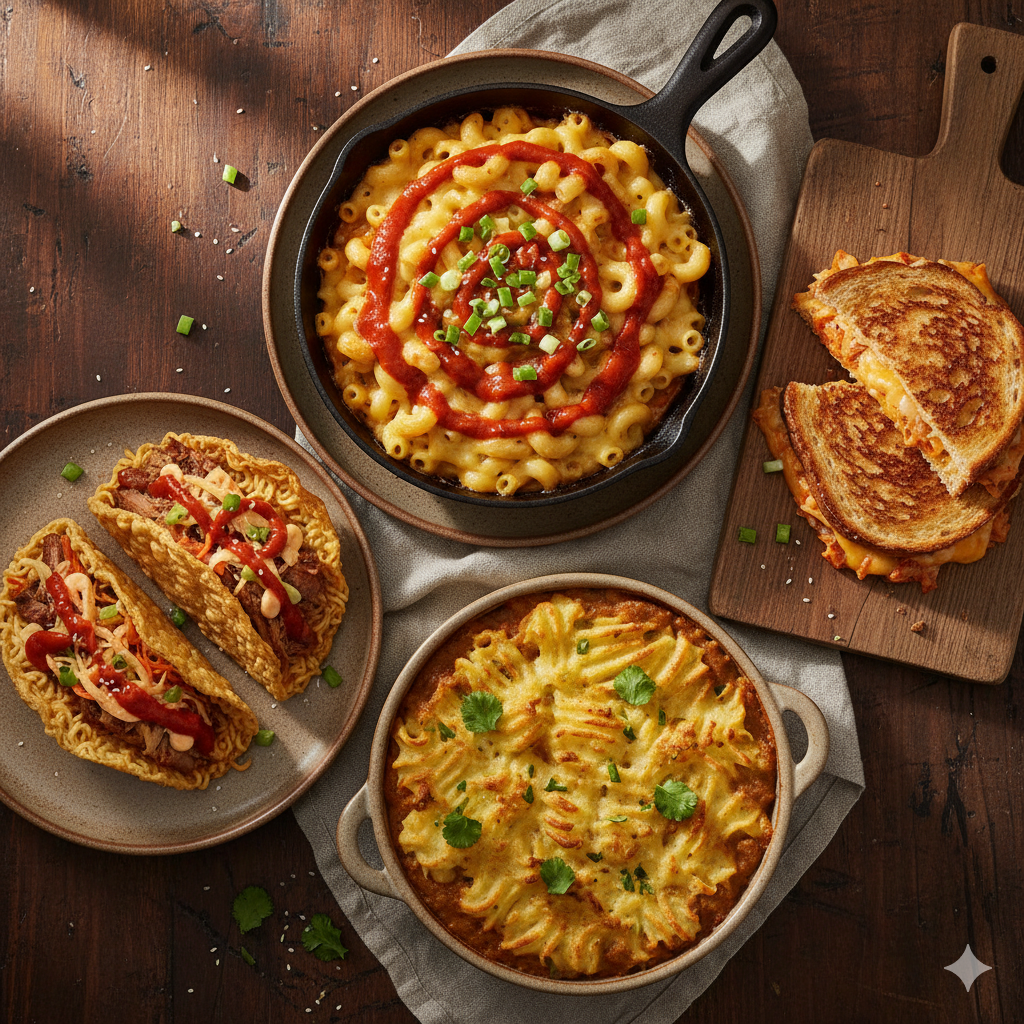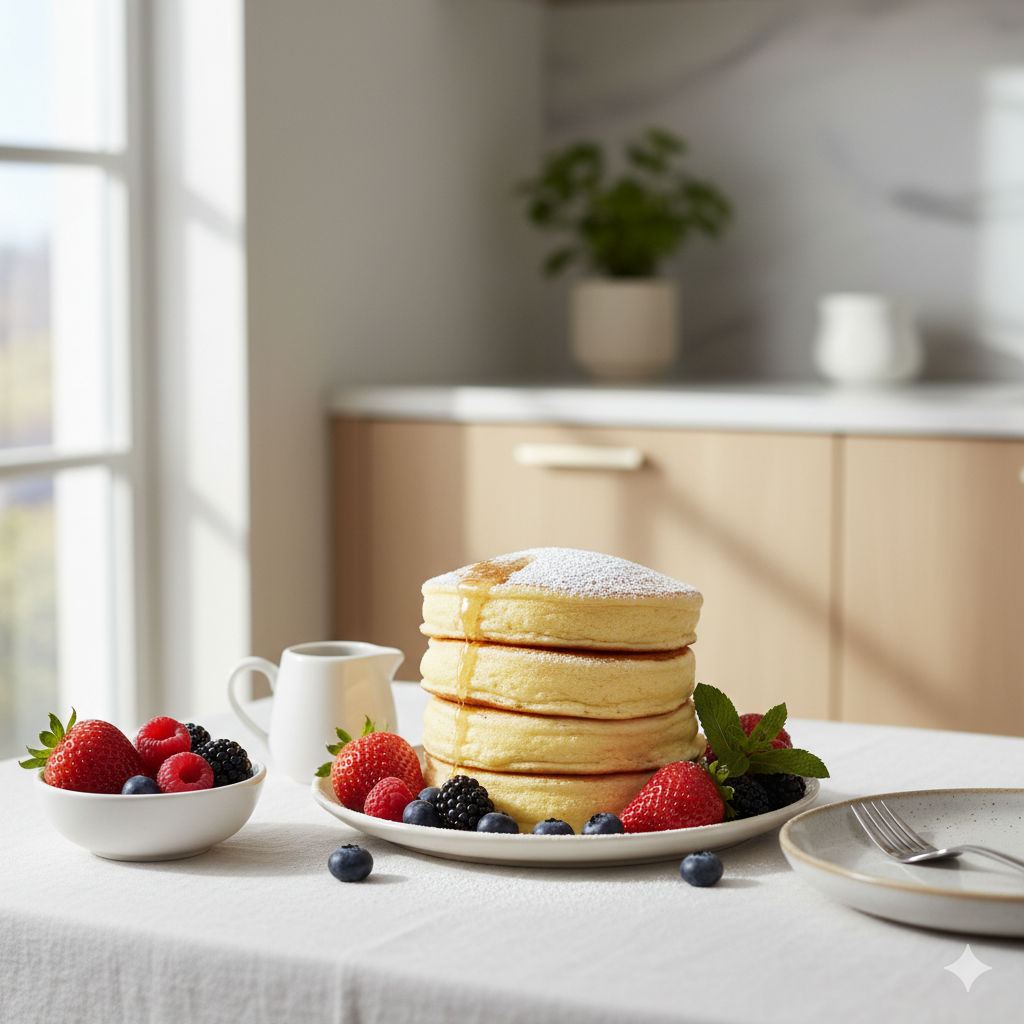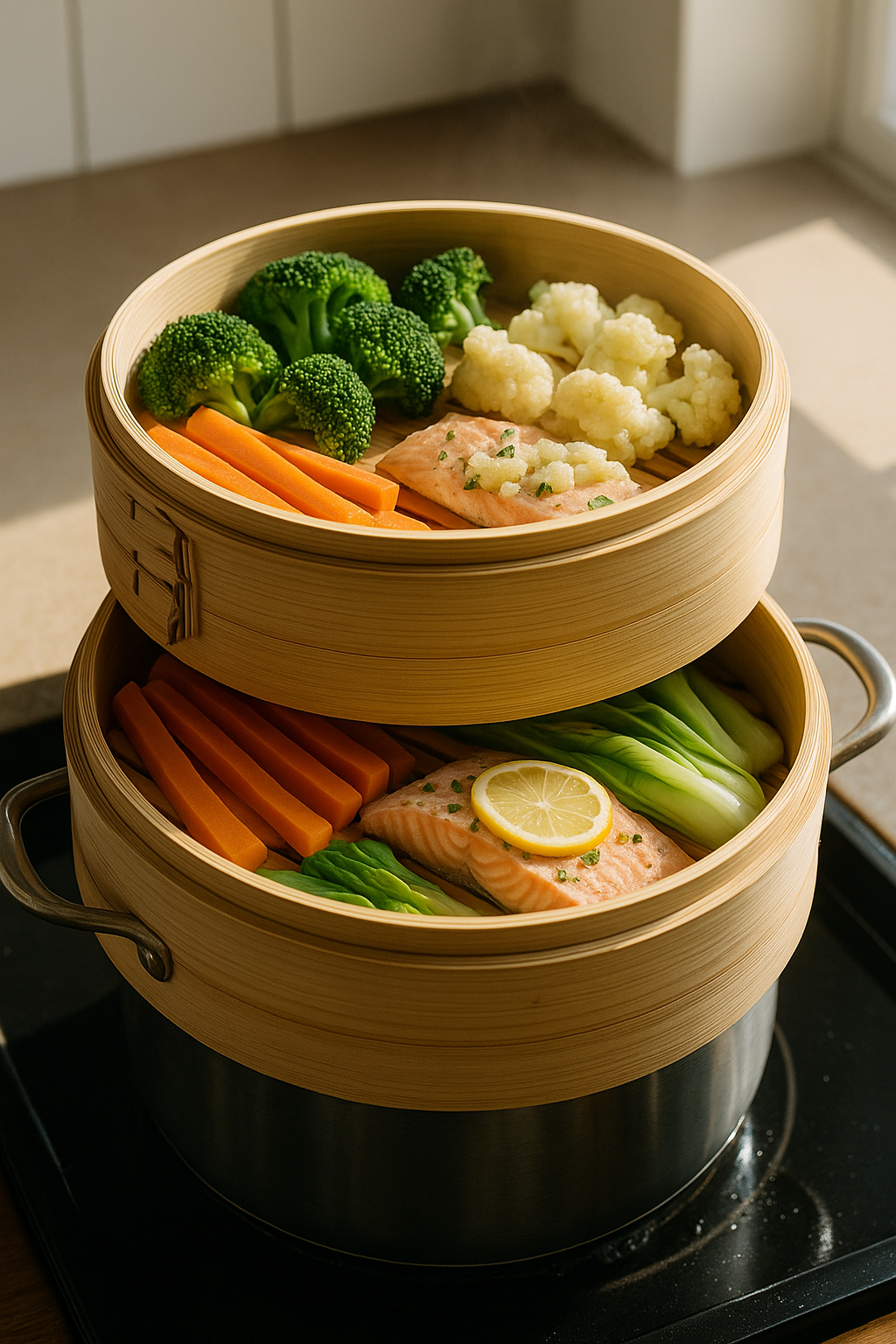Introduction: Why the World Is Rewriting Comfort Food
Comfort food connects us to memories — a taste of home that transcends borders. In 2025, this familiar feeling is being reimagined. Around the world, cooks are remixing cozy classics with global flavors, creating a new wave of dishes that comfort and surprise at once.
Search interest in “comfort food recipes” consistently spikes during winter months across regions including the U.S., U.K., Philippines, and Australia (Google Trends, 2025). From ramen lasagna to butter-chicken mac and cheese, the fusion trend is now shaping everyday kitchen culture.
The Psychology Behind the “Comfort + Novelty” Mix
After years of global uncertainty, people crave emotional connection through food. According to FMCG Gurus (2025), consumers are increasingly drawn to nostalgic and traditional flavors — with 18 % seeking nostalgic tastes in snacks, and over 70 % citing flavour as the top factor influencing perceived product value. That mix of “old + new” explains why social feeds are full of mash-ups like kimchi grilled cheese or curry shepherd’s pie. Comfort food isn’t disappearing — it’s evolving into a shared, cross-cultural experience.
Top Global Reinventions for 2025
Classic Dish | Global Twist | Why It Works |
Mac & Cheese | Korean Gochujang Mac | Sweet-spicy umami adds depth to a Western favorite |
Shepherd’s Pie | Thai Curry Shepherd’s Pie | Coconut-lime aromatics replace heavy gravy |
Chicken Soup | Mexican Pozole Soup | Hominy + chili boost texture and warmth |
Grilled Cheese | Kimchi Grilled Cheese | Fermented spice balances melted richness |
Pancakes | Japanese Soufflé Pancakes with Maple Syrup | Light texture + familiar sweetness |
Lasagna | Ramen Lasagna | Noodle swap creates viral visual appeal |
How to Reinvent Your Own Comfort Dish
Step 1 — Pick your nostalgic base. Start with something tied to memory — your family’s soup, a favorite take-out, or a student-era meal.
Step 2 — Add a global accent. Borrow one element from another cuisine: a spice, sauce, or cooking method. Example: upgrade mashed potatoes with miso butter.
Step 3 — Balance flavor memories. Comfort = familiar and creamy; twist = bold and bright. Keep one stable element while changing another.
Step 4 — Make it visual. Color and form attract engagement. Use vibrant ingredients like turmeric, beet, or matcha.
Step 5 — Share and iterate. Online feedback keeps the trend alive — the next big comfort recipe might come from your kitchen.
Global Examples Going Viral
India → Momo Burgers: Dim-sum-style dumplings turned into street burgers.
Philippines → Ube Desserts: Purple yam brings nostalgic sweetness + Instagram-ready color.
Italy → Matcha Tiramisu: A Japanese-Italian fusion trending on TikTok.
United States → Hot Honey Everything: Sweet-spicy drizzle that migrated worldwide.
Middle East → Za’atar Fries: Comfort carb meets aromatic spice mix.
Each example shows how comfort adapts to cultural imagination while staying emotionally familiar.
Why This Trend Has Staying Power
Universally relatable: Every culture has its comfort food.
Highly visual: Fusion recipes perform well on TikTok and Instagram.
Customizable: Works with local ingredients and budgets.
Evergreen yet seasonal: Interest peaks in colder months, but emotional food never goes out of style.
As noted by FoodNavigator (2025), “familiar flavors reinvented in new formats or pairings” are one of the most enduring flavor movements this year — proof that comfort fusion isn’t a fad but a long-term shift.
Quick FAQ
Q1: What counts as comfort food globally?
Anything emotionally tied to home or stability — rice porridge, pasta, soups, stews, or sweets.
Q2: Is comfort food always heavy?
Not anymore. Modern recipes use lighter cooking (air-frying, plant-based swaps).
Q3: Which countries search “comfort food recipes” the most?
As of 2025: U.S., U.K., Philippines, Canada, India, Australia (Google Trends).
Q4: Easiest comfort dish to remix?
Mac and cheese — a neutral base for spices from curry to gochujang.
Q5: Will fusion replace traditional comfort foods?
No — it adds layers of creativity while classics remain beloved.
Q6: How to make a recipe trend-ready?
Tell its story — why it comforts you — and make the visual pop.



